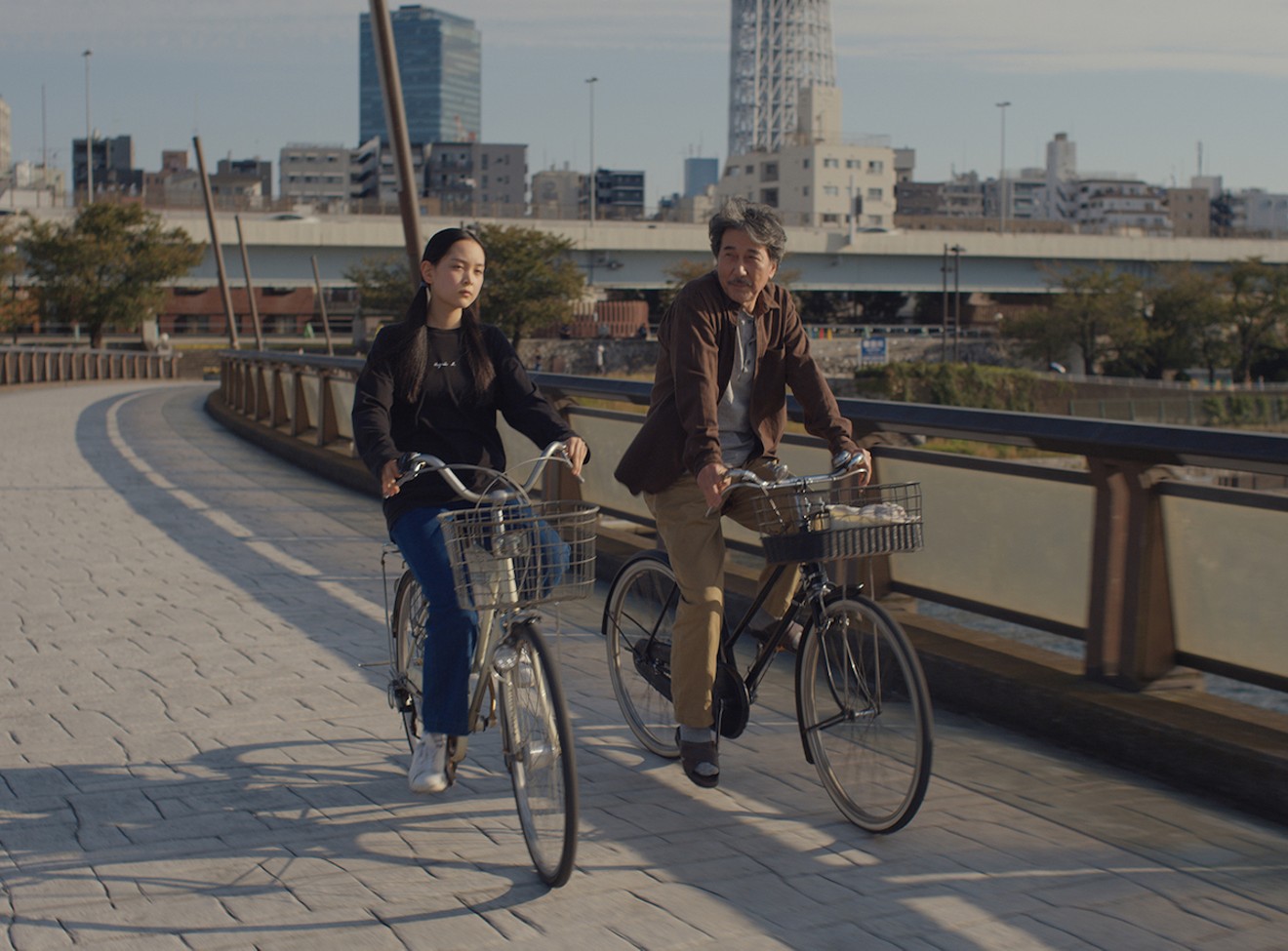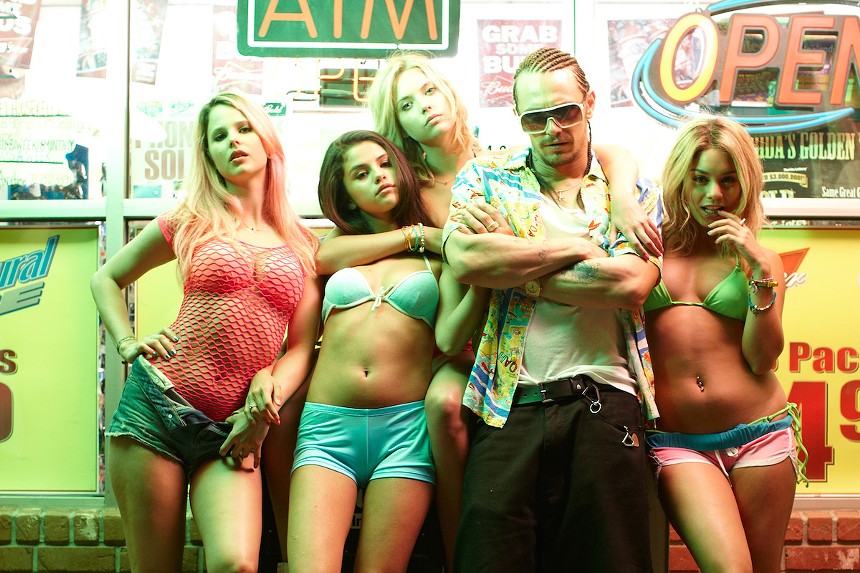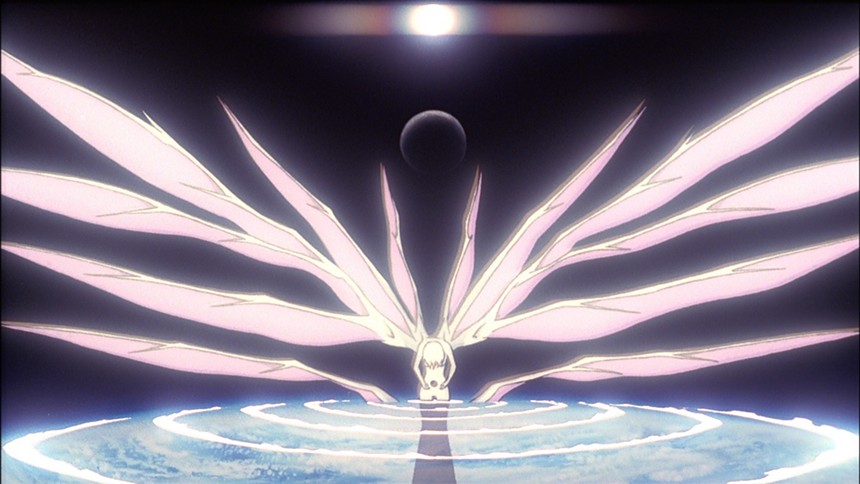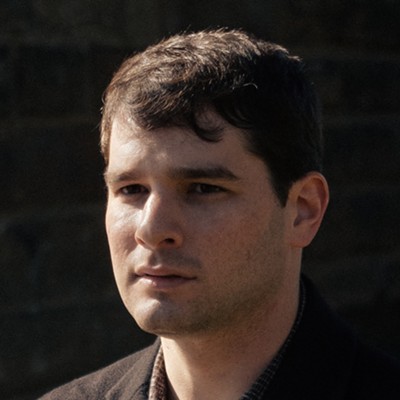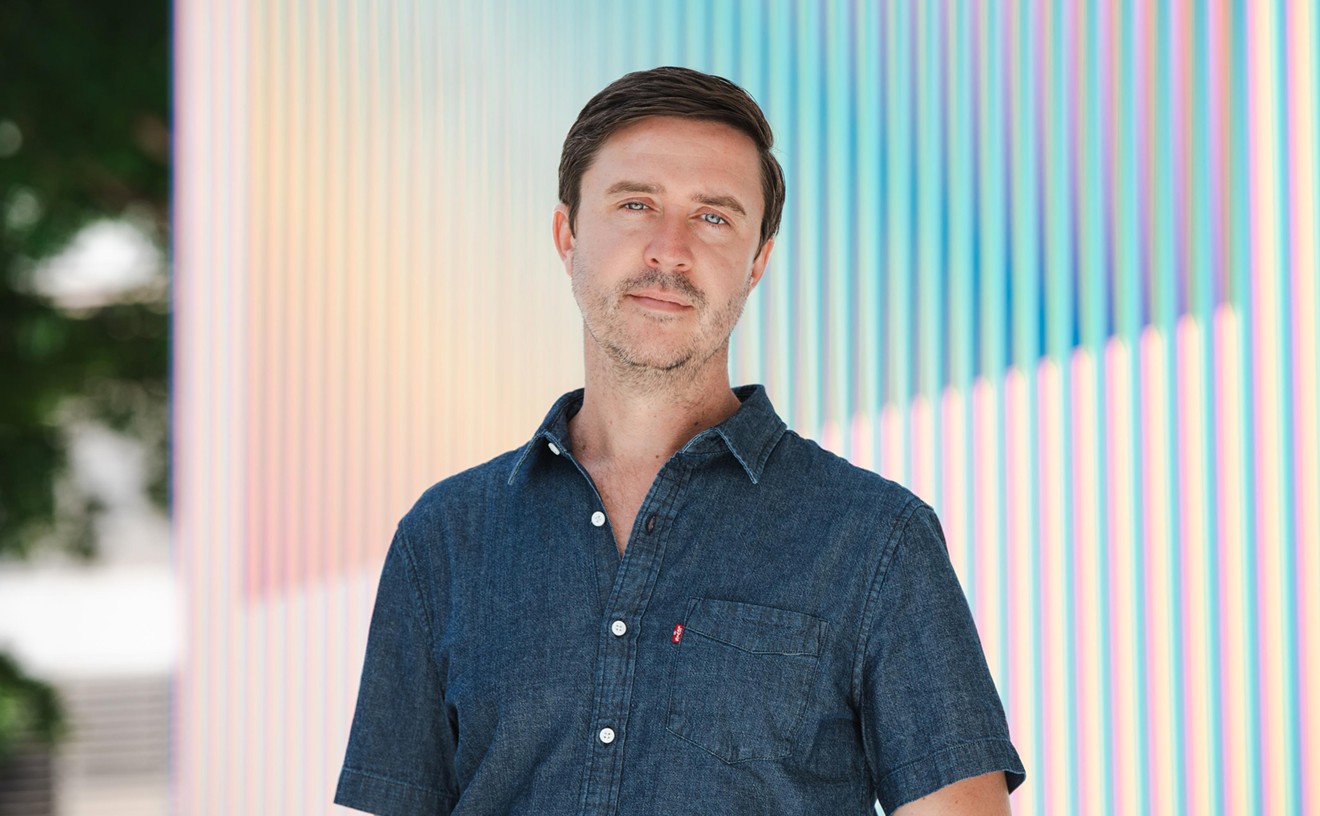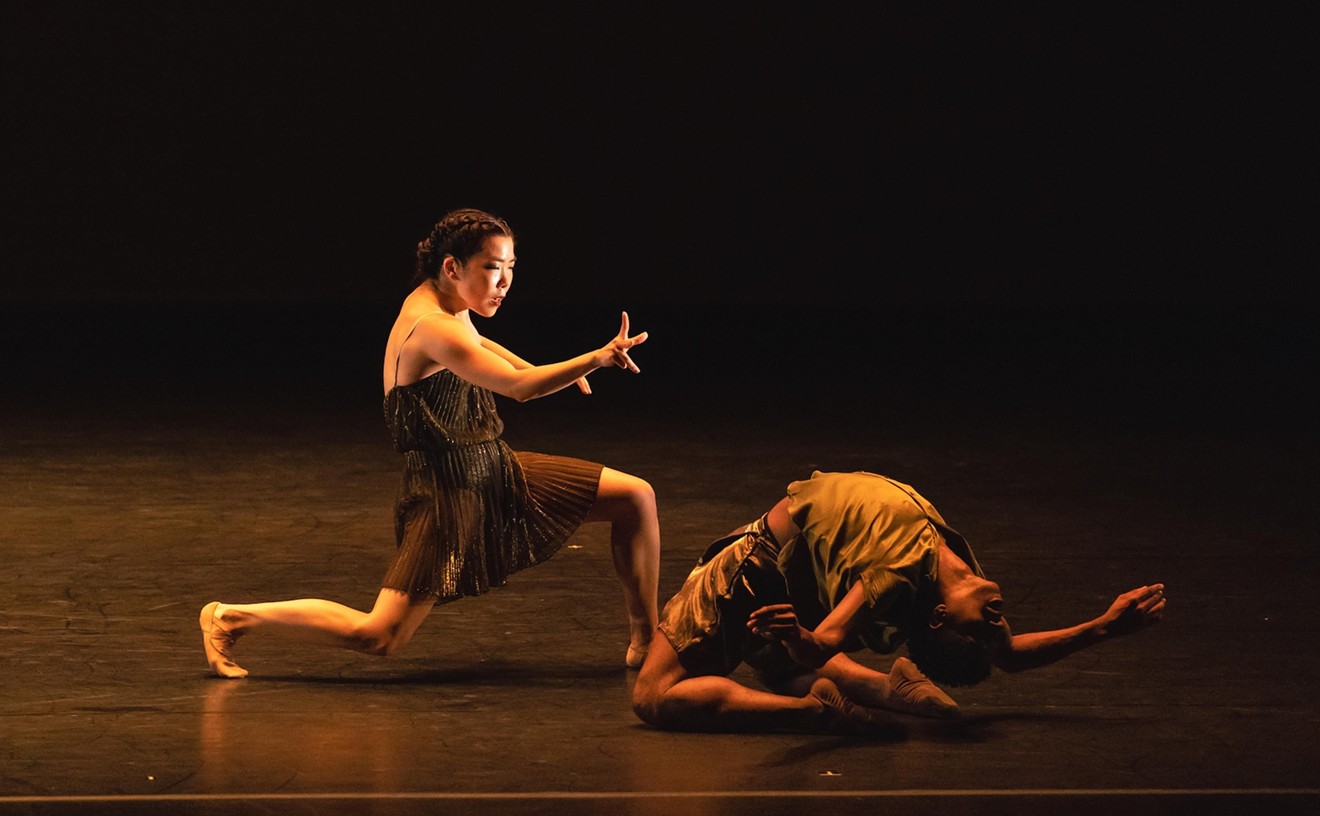This month sees screenings of a samurai classic, a freshly released awards contender, and a dark animated masterpiece, all hailing from the Land of the Rising Sun. There are also experimental film screenings and the return of Flaming Classics, featuring a distinctively outrageous vision of Florida.
Below, check out New Times' movie picks for March 2024.

Still from Visions in Meditation Part 2: Mesa Verde by Stan Brakhage
The Estate of Stan Brakhage photo
16mm Experimental Film Program at the Deering Estate
Although we may be lacking in the kind of critically acclaimed arthouse heavy-hitters that regularly screen in New York and LA (especially since the much-maligned closure of Tower Theatre), Miami's experimental film scene is quietly booming. Katherine Labuda's AV Club film series has shown archival films from the Miami-Dade Public Library System all over town. And last year, the Moving Image Alliance, curated by Barron Sherer, screened the monumental experimental film La Région Centrale at Emerson Dorsch.Now, the Alliance is back with another round of experimental films, this time taking over the Deering Estate. On March 2 at 3 p.m., visitors to the historic villa can take in four experimental films screened on glorious 16mm film, all for the low price of zero dollars. Some heavy-hitters of avant-garde cinema are on the bill, including Stan Brakhage, who made more than 350 films and challenged the idea of what the medium could do across his career, and Barbara Hammer, who pioneered feminist, explicitly lesbian films that examined women and women's issues outside of the male gaze. At Deering, Brakhage's film Visions in Meditation Part 2: Mesa Verde will study the ancient indigenous ruins in Colorado, while Hammer's Pond and Waterfall explore a watery world. Films by David Gatten and Abigail Child are also in the offing.
Can't get enough of experimental filmmaking? Moving Image Alliance is also screening filmmaker Joyce Wieland's cross-country Canadian travelogue La Raison Avant La Passion / Reason Over Passion at Dimensions Variable on March 9. That one is also free. 3 p.m. Saturday, March 2, at the Deering Estate, 16701 SW 72nd Ave., Miami; 305-235-1668; deeringestate.org. Admission is free with RSVP via eventbrite.com.
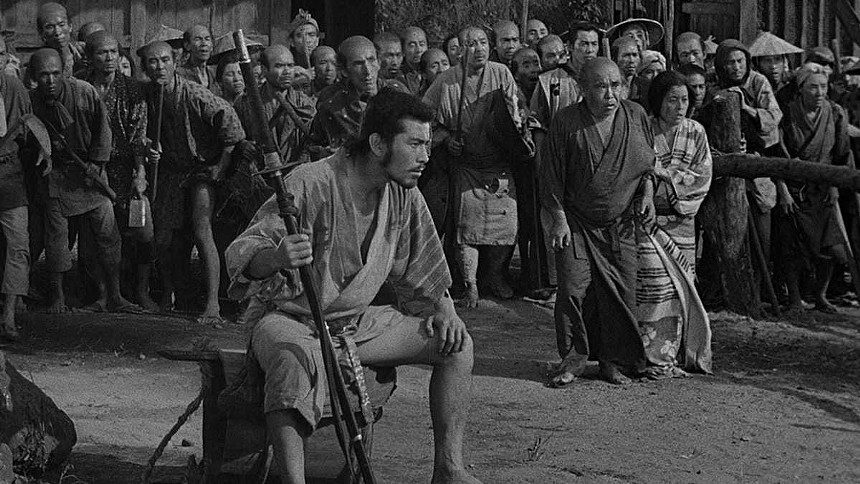
Akira Kurosawa's 1954 classic, Seven Samurai, screens at Coral Gables Cinema on March 2.
Janus Films photo
Seven Samurai at Coral Gables Art Cinema
Coral Gables Art Cinema just revealed a stacked After Hours lineup for March, with sci-fi epics The Fifth Element and 12 Monkeys and erotic thrillers 9 1/2 Weeks and Fifty Shades of Grey. It's starting things off, however, with a stone-cold classic among classics, Seven Samurai. Akira Kurosawa's classic 1954 samurai epic is one of the most influential movies of all time, a landmark in Japanese cinema that reconciled the country's violent past and adherence to strict social structures and duties with its postwar embrace of humanism and pacifism. The oft-imitated premise, inspiring the American Western remake The Magnificent Seven, among countless others, follows a group of Samurai warriors hired by a peasant village to teach them how to fight off bandits in Warring States-era Japan. With an epic 207-minute runtime, sitting down for the whole thing may seem daunting. But Kurosawa demonstrates through deft directing chops why he's one of the greatest filmmakers ever, and his troupe of regular actors, from Toshiro Mifune's rip-snorting rogue Kikuchiyo to Takashi Shimura's wizened leader Kanbei, struts its best stuff. Stick with this one through to the bitter end. 9 p.m. Saturday, March 2, at Coral Gables Art Cinema, 260 Aragon Ave., Coral Gables; 786-472-2249; gablescinema.com. Tickets cost $11 to $12.75.Spring Breakers at O Cinema South Beach
Twelve years ago, Harmony Korine, a cadre of Disney Channel stars, and James Franco doing a Riff Raff impression came to Florida to make a movie. What they unleashed has changed us all forever. Spring Breakers was the beginning of Korine's ongoing flirtation with Floridiana – he moved down to Miami shortly after wrapping the film and has made two more movies here since 2019's The Beach Bum with Matthew McConaughey and the upcoming Aggro Dr1ft featuring Travis Scott. More importantly, Spring Breakers was the first major success for a little film distributor you might have heard of called A24, which spent the next decade mining Florida for stories, winning Moonlight an Oscar in the process.But its lurid depiction of the state as a neon-soaked, maximalist dreamscape is why Flaming Classics, New Times contributor Juan Barquin's ongoing promotion pairing outrageous films with spectacular drag performances, is screening it this month as part of a new mini-series at O Cinema titled "Warm Greetings From Florida." In Korine's film, four college girls make off with a bag of stolen money to Florida for spring break and find a world of sex, drugs, binge drinking, and Day-Glo debauchery under the warmth of the St. Petersburg sun. Much more notable than its plot, which becomes saddled with a half-baked gangster turf war the moment James Franco's iconic white rapper sleazeball Alien steps onto the scene, are the film's visuals, which go far beyond neon bikinis and gratuitous T&A the film is best known for. Sophisticated, time-jumping editing gives the film an even more dreamlike, dissociative quality, and some of Korine's filmmaking techniques, such as shooting a heist entirely from the getaway car's POV, are quite clever. Twelve years removed from its debut, Spring Breakers feels like a time capsule of a certain strain of shamelessly trashy late-millennial youth culture — Project X being another notable film example that feels vanished in today's undersexed, image-conscious zeitgeist. Future screenings in Flaming Classics' Florida series include Zola on April 4 and Wild Things on May 2. 9 p.m. Thursday, March 7, at O Cinema South Beach, 1130 Washington Ave., Miami Beach; 786-471-3269; o-cinema.org. Tickets $10 to $12.50.
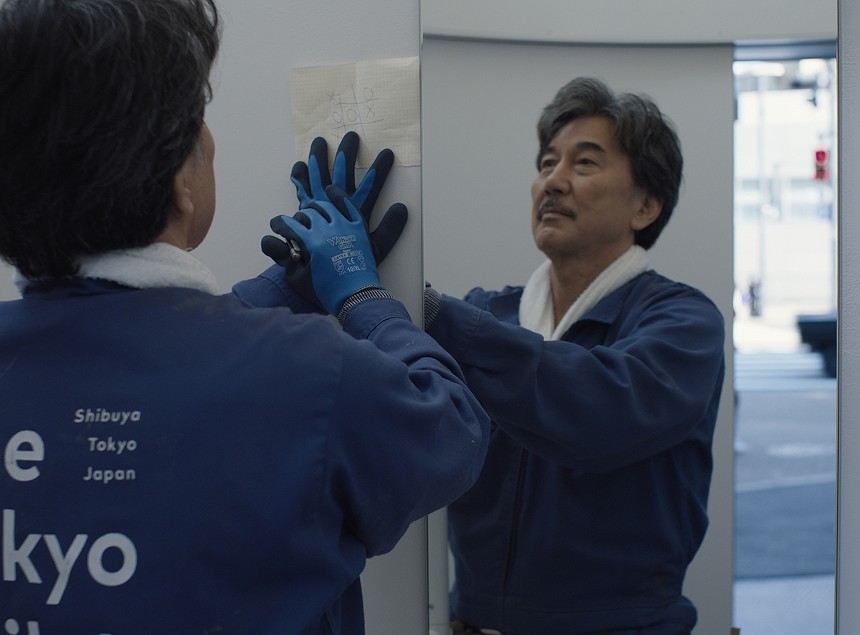
Perfect Days is nominated for "Best International Feature Film" at this year's Academy Awards.
Neon photo
Perfect Days at Coral Gables Art Cinema
Whether or not this Oscar-nominated film gets its flowers on March 10, Wim Wenders' plaintive take on everyday life in Japan is a must-see. Perfect Days is essentially a character study of a man who lives simply and simply lives. Koji Yakusho, famed for much more anxious performances in Kiyoshi Kurosawa horror films such as Cure and Doppelganger, plays Hirayama, a janitor cleaning public toilets in Tokyo's Shibuya ward. We see him go about his daily routine – wake up, listen to Lou Reed on the way to work, do the job, eat lunch in the pleasant public park, eat ramen at the end of the day, rinse, and repeat. He visits bookstores and gets photos developed on the weekends, and occasionally, he'll get a visit from his wayward niece or deal with bothersome coworkers. Ultimately, Hirayama shows us through his simple life that we can all find contentment if we learn to accept what is exceptional in the mundane.It may not sound particularly exciting, but it's not meant to be. Perfect Days can be seen as an exemplar of the Japanese genre of iyashikei, usually referred to as "slice of life" but better translated as "healing-type." It's a genre meant to nourish and comfort, showing cozy situations and easygoing life. Wenders' film, however, transcends this modest description. The master director behind Paris, Texas and Wings of Desire didn't need to convince anyone he was a great filmmaker, but he demonstrated his deep understanding of Japan, cultivated through making films such as Until the End of the World and Tokyo-ga in the country, and his mastery over the medium. It's also, put simply, a beautifully made film, with sumptuous shots of Tokyo and fascinating abstract dream sequences that elevate it even further. And through the film's featuring of the Tokyo Toilet Project, which invited famous architects such as Kengo Kuma, Tadao Ando, and Shigeru Ban, it serves as a very effective advocacy for beautiful and functional public bathrooms, parks, and other infrastructure, which many cities in America — Miami especially — could use more of. Friday, March 8, through Thursday, March 14, at Coral Gables Art Cinema, 260 Aragon Ave., Coral Gables; 786-472-2249; gablescinema.com. Tickets cost $11 to $12.75.
The End of Evangelion
A shocking work of unprecedented, unrivaled artistry, The End of Evangelion is one of the greatest films of all time, let alone one of the best works of animation ever completed. The 1997 movie, along with the TV series Neon Genesis Evangelion that preceded it, was a cultural phenomenon in Japan, a dark deconstruction of giant robot shows like Mobile Suit Gundam that got weirder and more disturbing as it went on, culminating in a surreal, spectacular movie conclusion that inspired horrific TV ads like this.It's hard to describe the plot of the film, but in broad strokes, the shadowy extra-governmental agency NERV has finished defending the Earth against the mysterious aliens known as Angels, using giant, anthropomorphic cyborgs known as Evangelions. They aim to enact a secret plan to end the world as we know it and bring humanity to a higher plane of existence. Caught in the midst of this apocalypse, NERV's traumatized Eva pilots search for meaning amid the carnage, and Shinji, the timid teen at the heart of the story, undergoes an odyssey into the deepest depths of his damaged psyche. But that doesn't even begin to describe the triumph of director Hideaki Anno and animation studio Gainax. Doubling down on the show's visual references to Christian and Jewish scripture and mashing together psychological and religious imagery, The End of Evangelion unfolds into a beautiful, nightmarish tapestry of blood-red seas and Kaballah trees, of feminine giants and bodies rendered into orange fluid. Responding to criticism the show's original ending received in Japan, Anno turns the film against the audience, using Shinji's journey as a potent critical stab against the stunted, antisocial otaku culture of Japan and an allegory for his own struggles.
Even ten years ago, watching the film and series in the United States was almost impossible without resorting to internet piracy. Due to licensing issues and financial and legal scandals at Gainax, seeing an official release for End of Eva, let alone a theatrical engagement, was unthinkable. But much has changed since then. Series director Hideaki Anno's reputation in the West grew with his Rebuild of Evangelion reboot series and Shin Godzilla, his inventive take on the iconic monster. Netflix finally brought the original series and End of Eva to U.S. streaming screens, and powerhouse anime distributor GKids gave it a collector's edition Blu-ray release. This month, GKids will release The End of Evangelion in North American movie theaters for the first time. There's time to watch the entire series before the film opens, but even if you haven't seen a shred of Evangelion, for its arresting imagery alone, this profound work of art must be seen on the big screen. "Run, don't walk" is an understatement. Sunday, March 17, and Wednesday, March 20, at select local theaters. For tickets and listings, visit gkids.com.

